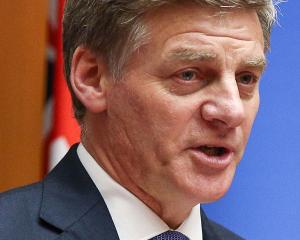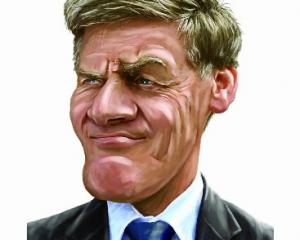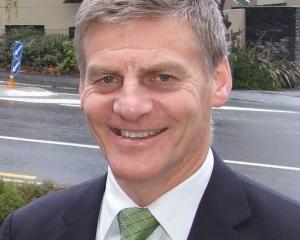Winston Peters did it by combining oratory with outrage while flashing his disarmingly seductive smile and exploiting the elderly's nostalgia for a New Zealand that never was.
Helen Clark did it by divorcing herself from Labour's recent but ugly past and selling herself as the credible reincarnation of the iconic figures from Labour's more caring but distant past.
John Key has done it by transforming himself from a stereotypical multimillionaire New York merchant banker into a stereotypical modest, unassuming average Kiwi bloke from next door.
Can David Shearer likewise come up with the right formula for a political elixir which similarly intoxicates voters and generates a wave of popularity upon which he can ride into election year?For many people, the jury is still out as to whether Shearer can cut it as Labour's leader. They bear no ill will towards him nor harbour any great expectations of him. He is seen as a Mr Nice Guy. There are no jagged edges for people to rub against and force them to form an opinion of him. They simply do not feel they know him. They consequently have yet to be convinced he has the necessary goods to run the country.
In seeing off David Cunliffe, Shearer revealed hidden strengths in crisis management drawn from his days working for the United Nations. But it is arguable how much of that washed down to the electoral coalface.
However, anyone in Labour's ranks fretting that Shearer will retreat into his shell now the threat to his leader-ship has dissipated need not worry.
He is determined not to squander the advantage he gained at year's end which saw him not only squash what would have become a leadership putsch, but emerge from the tussle in a far stronger position as leader.
A noticeable rise in support for Labour in pre-Christmas polls and plaudits for the party's ambitious plan to build 100,000 ''affordable'' houses meant he ended 2012 on an unexpected high.
Entering the crucial mid-term year of the electoral cycle, Shearer knows he must maintain that momentum. He has returned from his summer holiday with the intention of shaking up the political status quo by doing some things differently.
He is breaking with tradition by deciding to make the annual pilgrimage to Ratana other than on the day normally reserved for delegations from political parties. In doing so, he is underlining efforts to rebuild what was once a special relationship between Labour and the Ratana church.
Shearer's desire to stir things up will see him bucking convention elsewhere in coming weeks. Still handicapped by a charisma deficiency and a lingering difficulty in delivering a crisp sound bite, he has to find other ways of stapling his presence on to the nation's consciousness.
He won't give details, but he is likely to take positions on issues which will capture public attention and with it approval. He may take positions on some things Key may well wish he had adopted.
Shearer's job is to jolt voters so they start taking heed of Labour's wider message, particularly the fresh direction the party is taking on economic policy. There is also a feeling there is now a more receptive audience for that message among the middle classes who are struggling to get ahead, along with the hundreds and thousands of owner-operators of small businesses.
To that end, Shearer has scheduled a major speech for next Sunday - two days ahead of the Prime Minister's annual statement to Parliament which outlines National's policy programme for the next 12 months.
Shearer's address will focus on whether the time is now ripe for Labour's more ''hands on'' approach to economic management.
It was almost serendipity that one of the last acts of the summer silly season was the release of the Berl report questioning KiwiRail's mothballing of the freight-only Napier to Gisborne line.
You would be hard pressed to find anything else which so starkly displays the increasing divide between National and Labour.
Not that long ago, Labour would have ducked for cover and called for a cost-benefit analysis of the line's future potential and risks.
Shearer clearly believes the time for such fudging is past. Labour has to be clear about where it stands. Shearer says Labour would reopen the line. Full stop. The cost of repairing damaged track would come from money designated to upgrade the state highway between Napier and Gisborne to cope with the increasing volume of logging trucks as the region's harvest of exotic timber escalates.
That would require government intervention rather than leaving matters in the hands of KiwiRail, which is required to conform to far stricter measures of commercial viability.
Such intervention is not without political risk, however. Transporting logs by train has long been flagged as the saviour of the Napier-Gisborne line. But it has become a mirage. The reality is that for the past decade the line has carried minimal tonnages such that closure would increase the number of trucks on the state highway by just six per working day.
Can Labour afford to be seen to be promising to subsidise something that many say they want but few are willing to actually use?Labour argues that National has treated the global financial crisis as a blip and it will be business as usual for the world economy soon enough. Labour says the reality is that adoption of a more ''hands on'' style of economic management is a necessity because market policies are no longer sufficient on their own to deliver reasonable levels of economic growth.
National claims the shift in Labour's thinking towards greater intervention is a throwback to the past. National says Labour is cynically trying to appeal to people who do not like change. Adopting ''hands on'' management inevitably entails more government spending. Labour thus remains an unreconstructed tax-and-spend party despite trying to disguise it. In other words, a new wrapper but the same old product.
If nothing else, however, Shearer's more clear-cut position-taking will offer something voters have not enjoyed for a long time - a real choice between the two major parties on the fundamentals of economic policy. Expect the ensuing debate to run and run once the new political year officially gets under way next Wednesday with the first Cabinet meeting of 2013.
- John Armstrong is the The New Zealand Herald political correspondent.




